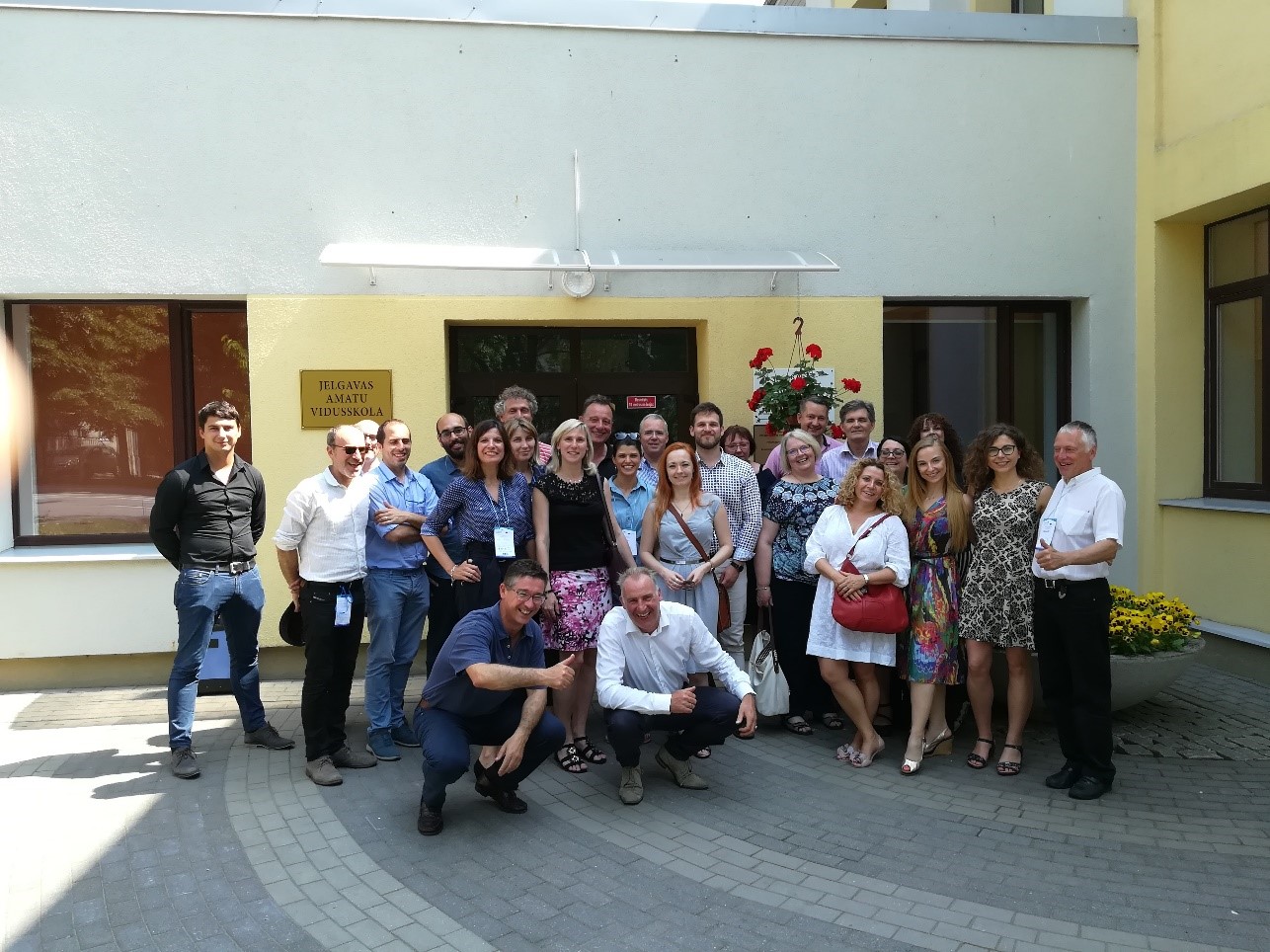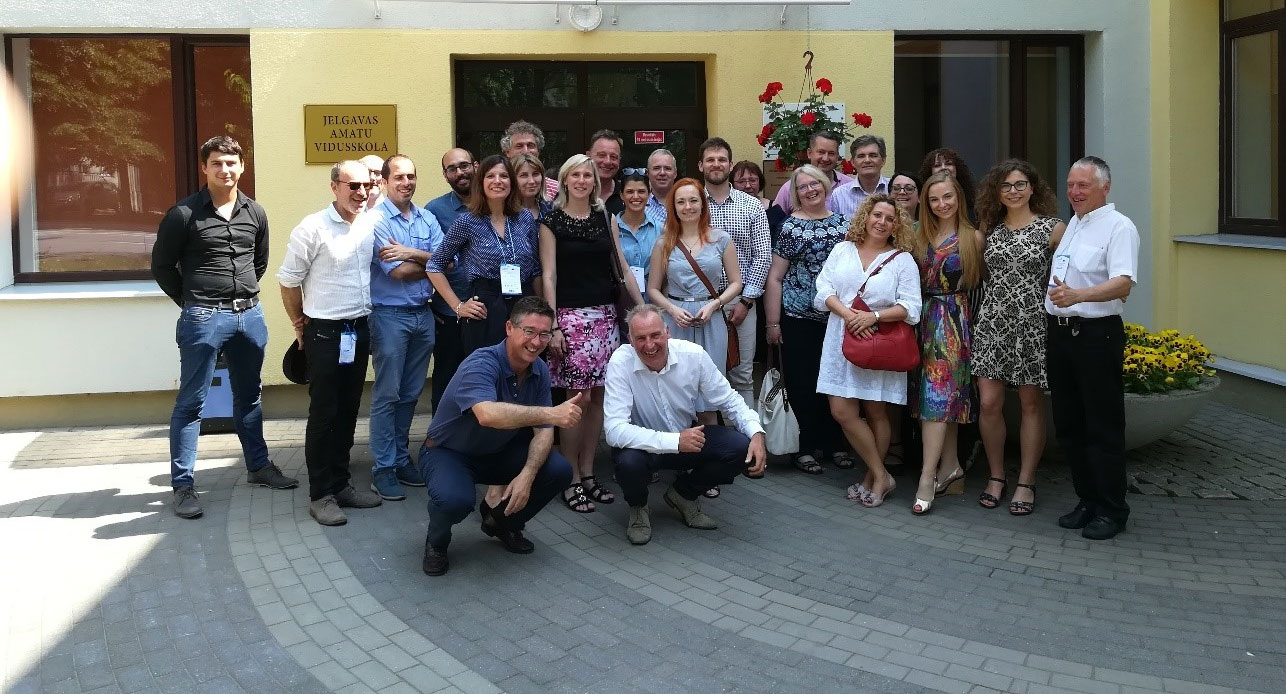E-Cool – report to steering group July 2019
Purpose
The overall objective of E-COOL is to improve the effectiveness of regional policies in promoting the entrepreneurial spirit of young people, contributing to future economic development and increasing EU competitiveness.
Sub-objectives:
- Improve and achieve more effective policies promoting entrepreneurial mindset.
- Increase the knowledge of policymakers, professionals and public servants working on entrepreneurship and education.
- Increase awareness on the advantages of an entrepreneurial education, as well as to promote cooperation between EU regions in the development of new policies.
Delivery Partners
In addition to Devon County Council, partners are:
Official Chamber of Commerce, Industry and Shipping of Seville, Spain
The South Moravian Region, Czech Republic
Zemgale Planning Region, Latvia
Hanze University of Applied Sciences Groningen, Holland
Harghita County Council, Romania
Puglia Region, Italy
Regional Development Fund of Attica/Region of Attica, Greece
Ministry of Economy, Entrepreneurship and Crafts, Croatia
The Agglomeration Opole Trust, Poland
Delivery Period
2018 – 2020 – The learning phase
2021 – 2024 – The Implementation Phase
Programme Value
£207,369
The DCC programme
The Devon County Council bid states:
“The policy instrument underpins the ambition of Devon County Council (DCC) schools to create or expand educational opportunities within the areas of enterprise and innovation for both pupils and staff. The design and implementation of enterprise activities has resulted in a number of alliances being established between schools and businesses. The collaborative evaluation of previous and current practice together with the sharing of EU regional best practice will enable DCC and schools to provide a better balance between education and skills for employment and will also aim to equip young people with the motivation and confidence to work for themselves.”
Methodology
The programme provides opportunities to share good practice via a series of study visits during the learning phase. Each partner is required to present a good practice piece to the group, from which three are chosen for closer inspection and the next meeting.
To date, visits have taken place to Brno, Czech Republic, and Jelgava, Latvia. The Gatsby Benchmarks and the Careers Hub Modal was presented in Brno (Jo Skeel attended) and chosen by partners for closer inspection in Jelgava (Suzi Wright, CEC, and Jess Tucker, South Devon College attended). The report submitted to Interreg Europe on this good practice is attached.
Learning
On returning from the visit Jess Tucker described the benefit she received as follows:
“From my perspective the experience was twofold. Professionally, it gave me an insight into how other countries develop opportunities to encourage entrepreneurship, some of which could be adopted in the UK. I am particularly keen to explore a HUB wide enterprise competition and a project that could involve TDA getting enterprise out into the community through young people.
Personally, the experience opened my eyes to the world beyond Devon and reminded me how important it is to also encourage learners to step out of their comfort zones as they will be able to bring back a different perspective on the place they live.”
Suzy Wright commented:
“I would say the benefits of this project are:
- Sharing best practice with other nations and partners
- Taking the learning we have gained over the last four years as a company and being able to share lessons learnt for example with:
- Schools and colleges now queueing up and wanting to work with us /join the network
- As you mentioned the low hanging fruit have been selected; we are now working with more challenging institutions (hence our lower data scores)
- Schools/colleges starting to share best practice ideas with each other
- We now have a much better idea of what ticks the boxes for each benchmark and can share the ideas more widely across areas
- Sharing these ideas with other partners helps crystallise the learning we have taken ourselves and allows us to reflect on what could be improved
- I enjoyed hearing about the other projects – particularly the Brno ‘playpark’ project had some relevance with its entrepreneurial strands and was similar to programmes we have for example run by Outset but was interesting in its longer-term reflective approach.
- The Andalusian chambers project has many similarities to enterprise competitions which we already have in this country – some of which eg Young Enterprise work very well and produce great results.”
The next visit
The next visit will take place 9-12 December 2019, to Hanze University of Applied Sciences Groningen, Holland. The visit will focus on good practices delivering entrepreneurship knowledge and skills to young people in education – secondary, Further Education or Higher Education. Identification of our good practice is on-going, and the chosen one will need to be notified to E-Cool project Managers by September 25th. Attendance at the meeting in Holland will be based on both the good practice chosen and the activities showcased by our Dutch Partners – more information to follow.
Any suitable projects, with contact details of person leading the initiative, should be notified to skillslaunchpad@devon.gov.uk


